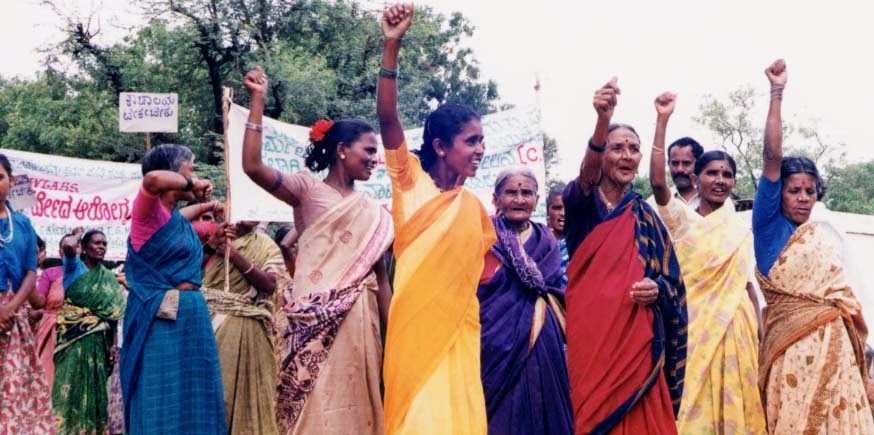Fifteenth in our series for 16 Days of Activism Against Gender-based Violence.
December 9 is International Anti-Corruption Day. #UnitedAgainstCorruption. According to Transparency International, there are millions of courageous women fighting corruption worldwide.
The United Nations reports that “Every year $1 trillion is paid in bribes while an estimated $2.6 trillion is stolen annually through corruption – a sum equivalent to more than 5 percent of the global GDP. In developing countries, according to the United Nations Development Programme, funds lost to corruption are estimated at 10 times the amount of official development assistance.”
Public resources are scarce in the most impoverished countries, which generally have very centralized governments – sending a much smaller proportion of public resources to grassroots communities. Add corruption, and the resources for communities to achieve their aspirations becomes even less.
Member organizations of the Movement for Community-led Development invest mightily in developing the capacity of women leaders. Our experience has shown that women leaders fight for the issues that women care about most – education, health care, clean water, public safety – aspirations that are directly thwarted by government corruption.
Consider the example of Deepa Rajguru, who was elected as president of her local council (panchayat) in Rajasthan.
One of Deepa’s most successful initiatives include sanctioning 600 feet of pipeline to bring water to the panchayat, addressing land disputes for which she faced incredible opposition and threats of violence against both her and her family. Without public discussion, the panchayat had contracted with trucks to deliver water at an inflated rate, and Deepa renegotiated to save Rs 72,000 (US$1,400) of public funds.
Are women inherently less corrupt than men? Some have argued that it is too early to tell – perhaps women have simply had less time to master the arts of corruption.
Certainly, the presence of women prime ministers in South Asia has not significantly reduced corruption. These women, however, did not gain office as a result of expanded gender equality, but rather as a result of being at the head of a family political dynasty.
However, new research published in 2018 shows the reality: “In a cross-country analysis of over 125 countries, this study finds that corruption is lower in countries where a greater share of parliamentarians are women. The study further finds that women’s representation in local politics is important too — the likelihood of having to bribe is lower in regions with a greater representation of women in local-level politics in Europe.”
Member organizations of the Movement for Community-Led Development have strong “Zero Tolerance” policies against corruption. Our commitment is to restore people’s control over their own lives and destinies. Corruption is a barrier to that fundamental human right which must be ended.


